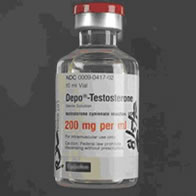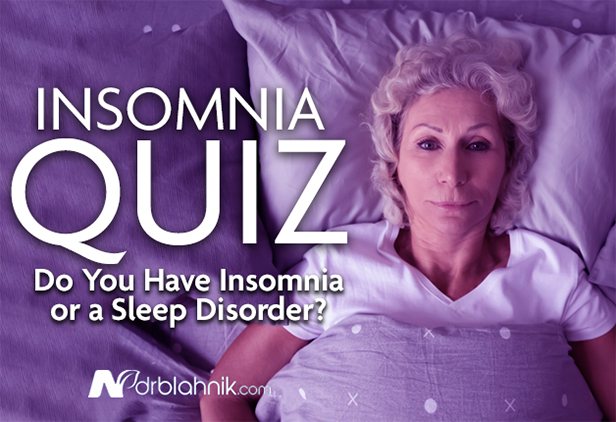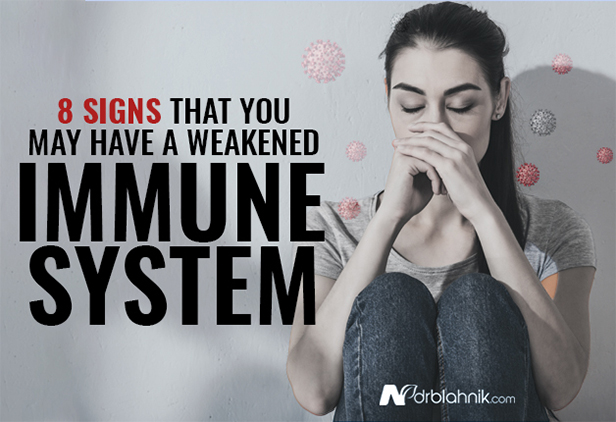There’s been a lot of controversy concerning hormone replacement therapy. Some scientists believe that it can increase the risk of prostate cancer or cardiovascular disease. Others believe that hormone therapy is safe and can greatly reduce the risk of a whole host of diseases and disorders.
Aggression
Hormone supplements have long been associated with steroid use and aggression but back in 1995 Dr. Christina Wang and her colleagues at the University of California found that instead, testosterone may help promote calm, peace, happiness and friendliness instead. 1
The study looked at 54 hypogonadal men (men with very low levels of testosterone) and found that they were angry, edgy and irritable. 1 When they were given testosterone replacement therapy, the men reported feeling friendlier and more optimistic. 1
Wang said, “Every parameter we looked at went in the same direction. The positive mood increased, the negative mood decreased.”
The idea that testosterone produces negative and antisocial behavior “may be a misconception,” says Dr. Willis K. Samson. 1
Wang and other researchers have found evidence that estrogen might be the source of aggression rather than testosterone. 1
Although estrogen is more dominant in women and testosterone more dominant in males, both sexes have both hormones.
Many scientists today are worried that endocrine disruptors and estrogen-mimickers in our environment and food and water supplies may be contributing to estrogen excess in both men and women.
Research that has shown links between estrogen, low testosterone and aggression include: 1
- Scientists from Rockefeller University and the National Institutes of Health have shown that when mice are altered so that they cannot respond to estrogen, they lose much of their natural aggressiveness.
- When Dr. Bremmer chemically induced low testosterone levels in men, they found that the men became more aggressive. “Perhaps it made them uncomfortable or unhappy in a variety of ways, and that unhappiness registered itself as a high score on the aggression scale,” Bremmer said.
- When researchers at Pennsylvania State University gave hormone treatments to boys and girls who were “late bloomers” (estrogen to girls and testosterone to boys), the girls exhibited earlier and larger increases in aggression than the boys until the last and largest dose of testosterone was administered. The Penn State scientists believe that the results were due to the enzyme aromatase, which converts testosterone into estrogen and the fact that there are many more receptors for estrogen in both males and females. The girls may have been more aggressive because they did not have to convert testosterone into estrogen.
- Past studies on testosterone and aggressive behavior, say researchers, have been done on highly stressed and highly select groups of men such as competitive athletes and male prisoners. These are men “with a particular psychological makeup,” points out Wang, that might be more aggressive to begin with. And the testosterone they were given were synthetic mixes rather than natural or bioidentical.
- Testosterone replacement treatments appear to give both men and women added energy and zest for life, and seem to increase concentration ability, unlike what occurs with aggression.
More recently, the use of anabolic steroids by many professional athletes (and their aggressive behavior) has prompted more research which has found that the type of androgen or male hormone, the dosage and the individual makeup of the person taking it influence its effects. 2
Low doses of testosterone, such as those used in hormone replacement therapy, are associated with increased muscle strength and bone density, improved brain function and mood and better overall quality of life. 2
High doses of anabolic steroids, however, such as those used by many athletes are linked to aggression, depression, hypomania and violence. 2
Dosages used in hormone replacement therapy range from 50 to 100 milligrams per week while anabolic steroids are taken in doses of 1000 milligrams or more and combined or “stacked” with other drugs. 2
More frighteningly, there is evidence that the effects of large doses of steroids linger long after use is stopped and change, for the long-term, circuits of mood and aggression in the brain, especially if used during development. 2
Many scientists fear that the negative association that athletes have created with illicit steroid use may dampen research and development on hormone replacement therapies. 2
It’s Not Just Testosterone
Hormone replacement treatments don’t just involve testosterone replacement. The endocrine system involves a whole host of hormones that work in intricate balance, each affecting the other, and anti-aging doctors employ diet and lifestyle changes to help support the body’s natural hormonal balances.
DHEA
DHEA, the “master growth hormone” is another compound used in hormone replacement that doesn’t affect hair growth or muscle mass. 2 Instead it helps build connections in the brain that might alter mood for the better.
In 1990, Dr. Daniel Rudman found that when he gave twelve older men doses of DHEA, they increased their muscle mass and bone density as well as lost body fat. 3 His statement that “The overall deterioration of the body that comes with growing old is not inevitable. We now realize some aspects of it can be prevented or reversed,” spurred on the field of anti-aging medicine and hormone replacement therapies. 3
H.C.G.
H.C.G. is the acronym for human chorionic gonadotropin. 3 Commonly used as a fertility drug, some doctors use it to stimulate the testes to secrete more testosterone. 3
Thyroid hormones
Most standard thyroid tests, says Dr. Kent Holtorf, aren’t accurate. 6 The “normal” standards used to measure them are often in the sub-optimal range and severely low thyroid hormone levels won’t show up on standard TSH and T4 tests. 6 The conversion of T4 into other thyroid hormones is the part of the process that often isn’t measured, resulting in misdiagnosis of thyroid problems, the hormone specialist says. 6
These undetected low thyroid hormone levels can contribute to imbalances of sex hormones as well as arthrosclerosis, heart attack, fatigue, depression and weight gain. 6
Estrogen Levels
In order to combat estrogen excess and bring hormones back into balance, doctors may use a variety of techniques including: cutting back on alcohol, soy and grapefruit, 7 getting exercise and reducing body fat, 8 eating hormone-free animal products, 8 and reducing exposures to estrogen mimickers in health and beauty products, household cleansers and over-the-counter medications. 8
Testosterone levels may be increased with natural supplements such as vitamins C and E, zinc and supplements like gingko biloba, muira puama and L-arginine. 7
Some supplements can increase the availability of testosterone in the body so that isn’t as bound up by SHBG, sex hormone binding globulin. 8 Tongkat Ali, Maca and Puncture Vine are herbal supplements thought to increase testosterone levels in this way. 8, 9
Other Hormones
Dr. Florence Comite also uses dehydroepiandrosterone, human-growth hormone and melatonin to help balance hormonal levels, and measures levels of cortisol, the “stress hormone” that can interfere with endocrine function. 3
Side Effects
With the use of growth hormone comes the risk of fluid retention, joint pain and a possible diabetes association. 3 Testosterone risks are thought to include: acne, breast enlargement, overproduction of red blood cells (thick blood), sleep apnea, sperm reduction and testicle shrinkage. 6
The most cited and controversial side effect of testosterone replacement therapies is that of both benign and cancerous prostate growth. 6
Hormone therapy in the past was done with synthetic hormones which have been found to have a host of negative health effects. 8 Today, bio-identical hormone therapies are used but research that pertains to synthetic hormones and is often wrongly applied to natural hormone therapy. 8
Dr. Abraham Morgentaler says, “What’s remarkable to me is how everybody has an opinion that often isn’t based on much.” 3 Morgentaler says that most of the claims that testosterone may trigger prostate cancer growth is borne of “soft science.” 3 He found amazing amounts of evidence that testosterone has many positive health benefits instead. 3
Testosterone is important for: 3, 4, 5
- Muscle growth and strength (especially the heart muscle)
- The prevention of osteoporosis
- The prevention of diabetes and overweight
- Red blood cell production
- Sex drive
- Sleep patterns
- Energy
- Emotional states
- Cholesterol levels
- The prevention of metabolic syndrome
- The prevention of fatty liver disease
Low testosterone levels are also associated with increased risk of heart disease and Alzheimer’s disease. 5
Methods of Delivery
Oral testosterone isn’t absorbed well and can affect the liver. 5 Instead, testosterone is given by intramuscular injection, a skin patch or by applying a gel. 5
Synthetic hormone manufacturers have battled bio-identical hormone therapists and helped to mislead the public into thinking such treatments are dangerous. That’s because natural hormones aren’t patentable or profitable.
Endocrinologists that use bio-identical hormones often use compound pharmacies, where the product is individualized to the specific person and their hormonal needs. The clients don’t end up taking a standardized pharmaceutical product that contains many hormones that they don’t need or are dangerous synthetic blends. 8
So the battle rages on about the safety of hormone replacement therapy. One thing that is clear, however, is that synthetic hormones and most anabolic steroids are not safe. Although pharmaceutical companies are using a great deal of their monetary and legislative power to fight research and treatments involving bio-identical hormones, large-scale studies are now underway.
CEO of the rapidly growing hormone clinic Cenegenics says that doctors and their families account for 25% of the clinic’s clientele, and they have a 5-month waiting list for doctors wanting to enroll in their training seminars. 3
Dr. Blahnik steps, if I were you….
- Healthy Nerve System Function: Spinal Corrective Care Chiropractic (this is not pain management Chiropractic) adjustments remove pressure from the nervous system, allowing the body to function at a higher level.
- Take 2000-3000 mg of essential fatty acids per day in the form of Cod Liver oil
- Take B Complex 100 (3 times daily)
- Follow The Nutritional Healing Plan www.MyBodyAtWorkcom/Nutrition
- Try our 1MinuteBody.com Exercise and Movement based on Surge / Burst Training which stimulates the excretion of HGH naturally and improved production of Testosterone naturally within one minute.
Sources
- Angier, Natalie (1995, Jun. 20). Does Testosterone Equal Aggression? Maybe Not. New York Times [online]. Retrieved from http://www.nytimes.com/1995/06/20/us/does-testosterone-equal-aggression-maybe-not.html?pagewanted=all
- Patoine, Brenda (2005, Sept. 1).Your Brain on Steroids: With Male Sex Hormones, Dose Size Matters. The Dana Foundation [online]. Retrieved from http://www.dana.org/news/brainwork/detail.aspx?id=810
- Dunkel, Tom (2010, Jan. 15). Vigor Quest. New York Times [online]. Retrieved from http://www.nytimes.com/2010/01/17/magazine/17antiaging-t.html?pagewanted=1&ref=magazine
- Mayo Clinic (2010, Apr. 10) Testosterone therapy: Key to male vitality? Mayo Clinic [online]. Retrieved from http://www.mayoclinic.com/health/testosterone-therapy/MC00030
- Fernandez, Angela (2009, July). Why Men Should Explore their Hormone Replacement Options. Image Magazine [online]. Retrieved from http://www.bodylogicmd.com/hormones-in-the-news/why-men-should-explore-their-hormone-replacement-options
- Holtorfmed (2009). Fatigued, Depressed, Difficulty Losing Weight? Holtorf Medical Group [online]. Retrieved from http://www.holtorfmed.com/topics/thyroid/fatigued-depressed-difficulty-losing-weight
- Gearon, Christopher J. (2010). Dealing with Male Menopause. Discovery Health [online]. Retrieved from http://health.discovery.com/centers/mens/articles/andropause.html
- Ackerly, Mary MD (2010, Feb. 14). More Men Being Treated for Andropause. Tucson Green Times [online]. Retrieved from http://tucsongreentimes.com/2010/02/more-men-being-treated-for-andropause/
- Men’s Health Centre (2004). What is Andropause? Men’s Health Centre [online]. Retrieved from http://www.menshealthcentre.net/andropause/andropause1.htm




